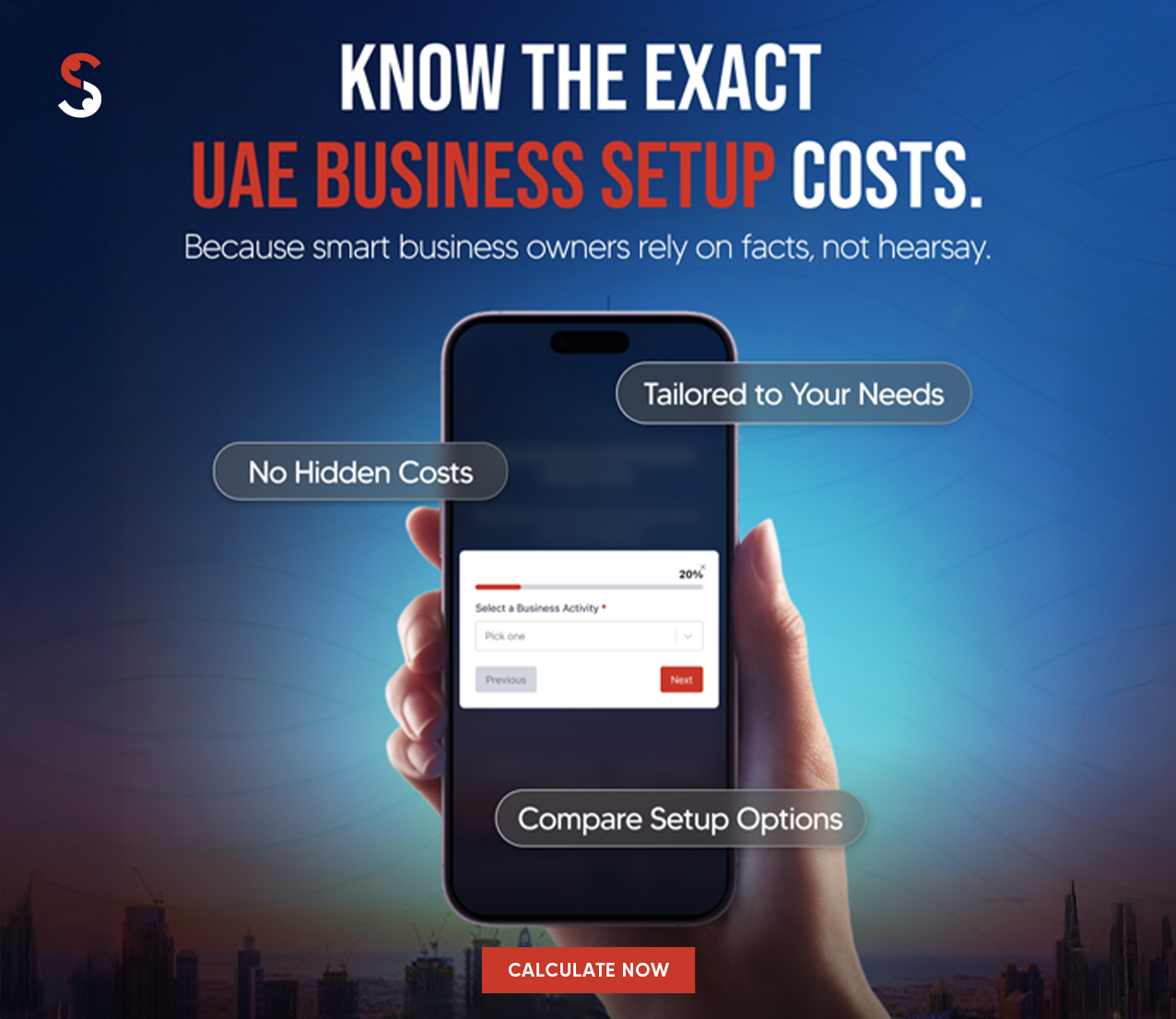Dubai, the gleaming jewel of the UAE, has become a hotspot for real estate investment, thanks to its tax-free status, growing infrastructure, safety, and high rental yields. Whether you’re looking to own a luxurious villa in Palm Jumeirah or investing in a high-rise apartment in Downtown Dubai, the city offers a wide range of property options for both residents and foreign investors.
However, before acting, it’s essential to understand the legal, financial, and procedural aspects involved. In this guide, we walk you through how to buy property in Dubai step-by-step and explain how Shuraa Realty can help make the process seamless and stress-free.
Is it Profitable to Buy Property in the UAE?
Yes, it is profitable to buy property in the UAE, especially in cities like Dubai and Abu Dhabi, where rental yields, investor-friendly policies, and economic growth continue to attract global buyers. Here’s a breakdown of the recent stats and forecasts for 2026 and beyond:
Market Performance (Up to 2026)
1. Dubai
- Property prices increased by ~60% from 2022 to early 2025. Source: reuters.com
- Total real estate transactions in 2024 reached AED 761 billion, with over 14,000+ deals in January 2025 alone (worth AED 44 billion).
- The luxury market experienced a 20% increase in value in 2024. Source: medium.com
- Rental yields are currently 6–7%, among the highest globally. Source: Indiatimes.com
2. Abu Dhabi
- Residential prices rose by ~10% YoY in 2024. Source: globalpropertyguide.com
- Rental yields range from 6% to 8%, particularly in areas such as Yas Island and Al Reem Island.
- Steady growth with fewer fluctuations compared to Dubai.
Trends & 2025 Outlook
- Off-plan properties continue to dominate, making up ~53% of all transactions in early 2025.
- High rental yields in key neighbourhoods ensure ongoing cash flow for investors.
- Strong population growth (+3–5% annually) and a tourism boom are pushing demand for both residential and vacation properties.
- Golden Visa policies and 100% foreign ownership in freehold areas continue to fuel interest.
Risks to Consider in 2025–2026
- Fitch Ratings forecasts a potential 15% price correction in Dubai by late 2025 due to an increase in housing supply (with over 76,000 new units expected in 2025).
- Short-term flipping could become risky in overbuilt mid-market areas.
- Interest rates and global inflation may affect financing and purchasing power.
Is it Still Profitable?
Yes, especially for long-term investors focused on:
- High-demand communities (Downtown Dubai, Palm Jumeirah, Yas Island, Dubai Marina, etc.)
- Rental income strategies with an ROI of 6–8%
- Capital appreciation in luxury and waterfront developments
2025–2026 Projection Snapshot
| City | Expected Growth | Rental Yields | Risk Factor |
|---|---|---|---|
| Dubai | 5–10% (moderate) | 6–7% | Oversupply |
| Abu Dhabi | 3–5% (stable) | 6–8% | Rising rates |
| Sharjah & Northern Emirates | 5–8% (emerging) | 5–7% | Infrastructure |
In conclusion, purchasing property in the UAE remains a profitable investment, particularly if you focus on prime locations, long-term value, and rental yield returns. With thoughtful planning and the right partner, you can capitalise on one of the most dynamic real estate markets in the world.
Read also: How to Start a Real Estate Business in Dubai
Why Invest in Dubai Property?
Before we jump into how to buy property in Dubai, let’s understand why it’s such an attractive option for investors around the world:
1. Tax-Free Income
Dubai is famous for being tax friendly. There’s no capital gains tax on the profit you earn from selling your property, and no annual property tax. This means more of your money stays in your pocket.
2. High ROI (Return on Investment)
Dubai offers some of the highest rental yields globally, particularly in popular areas such as Dubai Marina or JVC. Investors can earn returns of 7% to 9% annually, making it ideal for both long-term and short-term rentals.
3. Stable Economy
Backed by a strong, diversified economy (not solely dependent on oil) and supported by political stability, Dubai continues to attract significant foreign investment, ensuring long-term growth in property values.
4. World-Class Lifestyle
When you buy property in Dubai, you’re investing in more than just real estate. You get access to luxurious living, modern infrastructure, world-class amenities, low crime rates, and a vibrant, multicultural community.
5. 100% Foreign Ownership
Thanks to the introduction of freehold property zones, foreigners can own property outright in many prime locations—no local sponsor or partner needed.
In short, investing in Dubai property means strong returns, zero tax burden, full ownership rights, and a premium lifestyle—a powerful combination for any investor.
How to Buy Property in Dubai
If you’re wondering how to purchase property in Dubai, this guide outlines the essential steps to make your investment journey smooth and profitable.
Step 1: Determine Your Budget
The first step is assessing your financial capacity. Beyond the property price, consider the additional costs associated with it. These include property registration fees (4% of the purchase price), brokerage fees (typically around 2%), mortgage arrangement fees if applicable, and ongoing maintenance charges. Being financially prepared ensures that you stay within budget and avoid unexpected expenses.
Step 2: Choose the Right Location
Dubai offers a range of investment-friendly neighbourhoods, each catering to different buyer goals. For luxury living, Downtown Dubai—with its iconic Burj Khalifa—is a top pick. Dubai Marina is ideal for those seeking waterfront views and vibrant nightlife.
Business Bay attracts business professionals and short-term rental investors. For affordable options with a good return on investment (ROI), Jumeirah Village Circle (JVC) is a solid choice. If ultra-luxury beachfront living is your dream, Palm Jumeirah delivers premium villas and apartments.
Step 3: Select the Property Type
When determining how to purchase property in Dubai, one crucial decision is choosing between off-plan and ready-made properties. Off-plan properties are under construction, usually more affordable, and come with flexible payment plans.
On the other hand, ready properties are move-in ready and can begin generating rental income immediately. Your investment goals and timeline will help decide which is right for you.
Step 4: Work with a Trusted Real Estate Partner
Dubai’s real estate market can be complex, especially for first-time investors. That’s where Shuraa Realty steps in. With a deep understanding of the market, Shuraa offers:
- Curated property listings based on your needs and budget
- Legal support and assistance with documentation
- Help secure mortgage loans via partner banks
- Guided property tours and virtual walkthroughs
- Strong negotiation skills backed by market insights
With years of experience and a client-first approach, Shuraa Realty ensures that buying property in Dubai is a well-informed and seamless process.
Step 5: Make an Offer and Sign the Agreement
Once you’ve found your ideal property, your agent will help you make a formal offer. After negotiations, both parties sign a Memorandum of Understanding (MoU), and you’ll be required to pay a 10% security deposit. This step formalises your intent and secures the property.
Step 6: Secure Financing (If required)
If you’re not purchasing the property in cash, you’ll need to secure a mortgage from a local bank. This involves obtaining pre-approval, meeting eligibility criteria such as income verification and a satisfactory credit score and paying approximately 1% of the loan amount as mortgage processing fees. Shuraa Realty can connect you with trusted banking partners to make the financing process hassle-free.
Step 7: Transfer Ownership
The final step in purchasing property in Dubai is the transfer of ownership. You’ll visit the Dubai Land Department (DLD) to finalise the transaction, pay transfer fees, and receive your new title deed. And with that, you’re officially a property owner in one of the world’s most dynamic cities!
For professional guidance and a seamless property buying experience, contact Shuraa Realty at +971 4 408 1900 or send a WhatsApp message to +971 507 775554. You can also email info@shuraa.com or info@shuraarealty.com for prompt assistance.
Documents Required to Buy Property in Dubai
Here’s a comprehensive list of documents required to buy property in Dubai — whether you’re a resident or a foreign investor:
- Passport Copy
- Emirates ID (For UAE Residents)
- Visa Page Copy (If applicable)
- Proof of Address
- No Objection Certificate (NOC)
- Memorandum of Understanding (MoU)
- Title Deed (From Seller for Secondary Property)
- Initial Deposit Receipt
- Mortgage Pre-Approval Letter (If applicable)
- Power of Attorney (If represented by someone else)
Read also: Buy Dubai Property by Investor Visa
What Foreign Buyers Need to Know Before Buying Property in Dubai
If you’re a foreign investor eyeing Dubai’s real estate market, here’s the good news: you can legally own property in the city, thanks to Dubai’s progressive property laws.
Foreign nationals, including non-residents and expatriates, are allowed to buy property in designated freehold zones. The government approves these areas and gives buyers complete ownership rights, including the ability to sell, lease, or pass the property on as inheritance.
You can also opt for long-term leaseholds or usufruct agreements (similar to lifetime rights to use the property) for up to 99 years, providing flexibility customised to your investment goals.
This policy is supported by Dubai Regulation No. 3 of 2006, which outlines the conditions under which non-UAE nationals can own real estate. The complete list of freehold zones is detailed in the regulation (pages 129–132, if you’re the by-the-book type).
The Dubai Land Department (DLD) handles all title deed registrations, ensuring secure and transparent transactions. And here’s a surprising bonus: there’s no age restriction on property ownership, meaning you can invest at any stage of life, whether you’re 18 or 80.
Dubai’s open-door property policies are just one reason why it remains a global hotspot for real estate investors.
Tips for Property Buyers
- Understand Freehold vs. Leasehold Areas
- Get Pre-Approval for a Mortgage (if needed)
- Check for Hidden Costs
- Inspect Ready Properties Carefully
- Verify Title Deeds and Ownership
- Consider the Rental Yield (If Investing)
- Engage a Trusted Real Estate Consultant
- Understand the Resale and Rental Market
- Be Aware of Developer Delays (for Off-Plan)
- Always Check the Developer’s Reputation (Especially for Off-Plan Properties)
- Review Payment Schedules and Service Charges
- Work Only with RERA-Certified Real Estate Agents
- Avoid Rushing into Decisions—Do Your Due Diligence
Let Shuraa Realty Make It Easy for You
Buying property in Dubai is a rewarding investment—but only when done right. Whether you’re a first-time buyer or an international investor, Shuraa Realty provides all the support you need, from property selection to final paperwork.
Get a Free Consultation Today!
Phone: +97144081900
WhatsApp: +971507775554
Email: info@shuraa.com / info@shuraarealty.com
Let’s turn your dream of owning property in Dubai into reality.
Frequently Asked Questions (FAQs)
1. How Simple Is the Process of Buying an Apartment in the UAE?
Buying an apartment in the UAE is relatively straightforward, especially compared to many other global cities. The government has streamlined the real estate transaction process, and numerous licensed real estate agencies are available to assist buyers. Once you have chosen a property and agreed on a price, the paperwork and approvals typically proceed swiftly. With proper legal guidance and financing in place (if needed), it’s possible to complete the purchase within a few weeks.
2. Can Expats and Foreign Investors Purchase Property in Dubai?
Yes, foreign nationals are allowed to buy property in Dubai. The emirate has designated “freehold” areas where expats can buy, sell, and lease properties without restrictions. This has made Dubai one of the most attractive property markets for global investors. Whether you’re looking for a residence, a holiday home, or a rental investment, the opportunities are open to all nationalities.
3. What Are the Legal Rules Around Buying Real Estate in Dubai?
Property ownership in Dubai is regulated by Law No. 7 of 2006 concerning real estate registration in the Emirate of Dubai. According to this law, UAE and GCC citizens can buy property anywhere in Dubai, while foreign nationals can own property in approved freehold zones. All property transactions must be registered with the Dubai Land Department (DLD), ensuring legal protection for both buyers and sellers.
4. What’s the Key Difference Between Freehold and Leasehold Properties in Dubai?
Freehold means you own the property and the land it stands on indefinitely. Foreign buyers can buy freehold properties in specific areas like Downtown Dubai, Dubai Marina, and Palm Jumeirah.
Leasehold gives you the right to occupy or lease the property for a set term—typically up to 99 years—but you don’t own the land. Ownership reverts to the landowner at the end of the lease term.
5. How Long Does It Usually Take to Complete a Property Purchase in Dubai?
On average, the entire process—from selecting a property to receiving the title deed—can take 2 to 6 weeks. The timeline depends on whether the property is off-plan or ready-to-move, whether you’re paying in cash or through a mortgage, and how quickly documentation and payments are processed. Dubai’s digital systems and real estate infrastructure help ensure smooth and efficient transactions.
6. Do You Need to Be a UAE Resident to Buy Property in Dubai?
No, you don’t need to be a UAE resident to invest in Dubai property. Foreigners can buy freehold property even if they are not living in the UAE. However, owning property in certain cases (like ready properties above AED 750,000) can make you eligible to apply for a UAE residency visa, making Dubai even more attractive for long-term investors.
Disclaimer: The information in this post is for general guidance only and may change due to updates in government policies or regulations.










